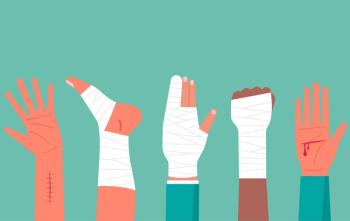
When Is It Justified to Force Treatment On Someone?
Ideology is much less important than common sense solutions. The mentally ill have many unmet needs and suffer from great and undeserved coercion.
Some would shout a resounding, impassioned, all inclusive, Never! No psychiatric coercion, not ever, not even under the most seemingly urgent of circumstances.
I once put the question to its supreme test-35 years ago while having dinner with
Tom’s landmark book The Myth of Mental Illness, written one half century ago, contained a crusading bill of rights for psychiatric patients. He argued passionately for the dignity and freedom of choice of mentally ill inmates who were then often warehoused for life in hospitals that were aptly compared to snake pits.
Tom’s childhood experiences under the repressive, fascist government in Hungary had shaped him into a radical libertarian and staunch defender of the categorical imperative to protect at all costs the right of the mentally ill to make their own decisions-even if they made bad ones.
Well maybe “not at all costs.” I posed to Tom a hypothetical in which his son was having a transient psychotic episode, was hearing voices commanding that he kill himself, felt compelled to act on this, and refused treatment. As a father, would you stand by your libertarian principles or protect your son from himself, even if this required coercion. Tom smiled ruefully and said, ‘I am a father first and protector of human rights second.’”
I recall this episode now for two reasons. First, I am in the midst of a wonderful
Second, the recent mass murder in Washington DC was likely triggered by voices and delusions in someone who had not received adequate treatment. Elsewhere I have explained why
Tom Szasz was much honored during the 50th anniversary of the publication of his book and then died recently
In Tom’s stead, Eleanor Longden is well situated to take on the haunting question of how best to balance individual liberty and dignity on one side; with individual and public safety on the other. She is a prominent defender of patients’ rights and was herself the victim of harms done by coercive psychiatric treatment.
In
I asked Eleanor to tackle the difficult problem posed by the hypothetical case I presented to Tom and the real one presented by the Washington DC mass murderer. Would her support of the ideal of patient freedom be flexible enough to deal with pressing practical exigency? She wrote:
Mental health services have not demonstrated reliable, consistent rationales for predicting or pre-empting violent behavior, and as such the Hearing Voices Movement has been critical of blanket strategies that attempt to justify chronic, politicized forms of coercion.
Nevertheless, we recognize that emergency treatment is necessary on occasions and, if managed well, can be a means of healing, positive outcomes for both distressed individuals and their communities. The likelihood of this increases exponentially if involuntary treatment is done in a “harm-minimization” way that respects the dignity, needs, and safety of the person concerned, where the use of physical force is kept to a minimum, and when it is implemented as a last resort when more collaborative strategies have failed.
Otherwise, an already distressed person can be left feeling even more traumatized and disenfranchised, less motivated to engage with support, and less likely to disclose troubling experiences-all factors which elevate future risk.
What we also advocate is being very proactive from the outset in trying to de-escalate crisis situations before they happen-for example, supporting the person to reclaim power dynamics with destructive voices, seeking ways to manage overwhelming emotion, and promoting a sense of choice and autonomy.
Positive risk-taking is a necessary part of recovery-in fact it’s what distinguishes active recovery from passive maintenance models-and to do this successfully requires active partnership between the client, mental health/social service professionals, friends and family members and, as activist and former nurse Karen Taylor says, “practicing from a place of freedom rather than fear.”
Thanks again, Eleanor. Involuntary treatment is perhaps the most contentious source of dispute between psychiatry and its critics (especially former patients who were forced into treatments that were harmful to them).
In
Where bright lines are difficult to draw, common sense and good will must prevail. Granted that allowing the necessity of any coercion is a slippery slope, but never applying psychiatric coercion even under extreme circumstances can both be dangerous in the short run and result in much worse coercion in the longer run.
As Eleanor points out, psychiatrists cannot predict violence with any precision, but some situations are explosive enough for anyone to identify as an obvious call to action. Someone has to stand in for a patient who has become clearly dangerous to himself or others. Not to intervene when catastrophe is so tangible would be irresponsible on the part of the professional and would ignore what the patient would want done if he were not impaired by the psychotic symptoms.
The majority of patients who do well come to recognize the necessity of the intervention and are thankful for the protection it afforded. Advance directives are a useful way to handle the risk of future recurrence.
Those who fare poorly are much less forgiving. Their outrage is always understandable and also is completely justified if the coercive treatment was unnecessary and/or second rate. But there are some situations that are so obviously dangerous that coercion is necessary, even if the outcome can’t possibly always be satisfactory.
And the type of coercion that is most harmful for the mentally ill has changed dramatically since Tom began his career. Fifty years ago, the dread was long term involuntary commitment to psychiatric hospital. Now the risk is prison, usually for nuisance crimes that were completely avoidable were there adequate community treatment, support, and housing.
The numbers tell the tale-a million psychiatric beds have been closed; a million prison beds for psychiatric patients have been opened. We have experienced a dreadfully coercive trans-institutionalization, not the hoped for reduction of coercion that was the goal of deinstitutionalization.
Coercive psychiatric treatment is now relatively rare; prison coercion all too common. Getting into a psychiatric hospital is extremely difficult and stays are usually about a week. Being jailed is easy and sentences are long. Patients should not be prisoners. We all need to advocate for the end of this barbarity.
Eleanor and I come to these issues from opposite experiences, but converge closely in our understanding and conclusions. For both of us, ideology is much less important than common sense solutions. The mentally ill have many unmet needs and suffer from great and undeserved coercion. Those of us concerned about their welfare must unify our efforts and stop the silly bickering that solves nothing and helps no one.
Newsletter
Receive trusted psychiatric news, expert analysis, and clinical insights — subscribe today to support your practice and your patients.







